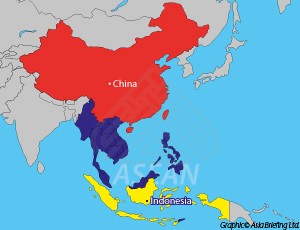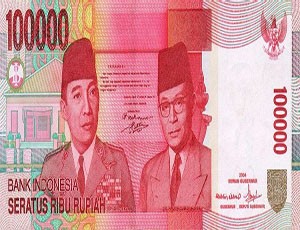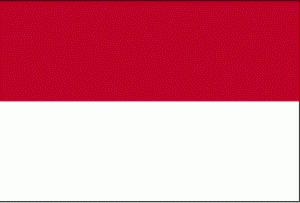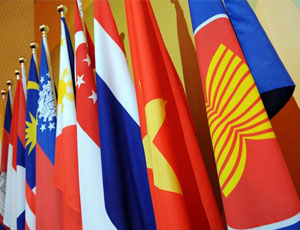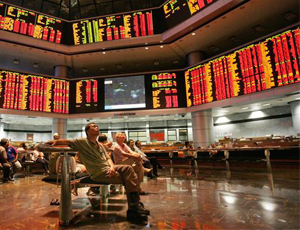The Cost of Business in Indonesia Compared With China
The second part in our comprehensive look at how doing business in ASEAN compares with China, this time focusing on Indonesia.
USA, New Zealand to Take Indonesia to WTO on Import Restrictions
The US and New Zealand have asked the World Trade Organization (WTO) for a dispute settlement panel to examine Indonesia’s wide-ranging restrictions on horticulture and animal imports.
Indonesia Struggles to Strengthen Weakening Rupiah
Tuesday, March 17th, Indonesia’s central bank, Bank Indonesia, announced that it will hold the country’s key interest rate steady at 7.5 percent. The bank has chosen not to follow the recent regional trend of countries drastically cutting their borrowing costs. Markets have so far met the news positively and the rupiah has strengthened 0.6 percent to 13,165 against the dollar – the largest gain in eight weeks. Indonesia’s government has been struggling to strengthen a rapidly weakening rupiah, the country’s currency. The rupiah is Asia’s worse performing currency against the U.S. dollar this year.
Indonesia Online: A Guide to E-commerce
While currently, e-commerce only accounts for less than one percent (worth ~US$2 billion per year) of Indonesian retail spending, analysts believe that the country’s fast growing middle class and proliferation of smartphones will soon raise that share to eight percent (worth US$8 billion) in just a few years. If that scenario were to happen, then Indonesia’s e-commerce market would be the largest in Southeast Asia.
Indonesia Looks to Foreign Investment to Boost Economy
Indonesia is set to introduce a one stop service for providing ministry licenses, speed up the completion of government tenders by March each year, establish a land bank to fast track infrastructure projects and release a five-year $450 billion infrastructure investment plan.
Letters of Credit Required for Indonesia Commodities Exporters
A Rule from Indonesia’s Trade Ministry requires commodity exporters to use letters of credit (L/C) in overseas shipments from April 1, 2015. The new rule will effect coal, oil and gas, palm and palm-kernel oil, and minerals including tin. According to the Ministry, these commodities together accounted for over 41 percent of Indonesia’s exports from 2009 to 2013, averaging $US71 billion per year.
Indonesia-Malaysia Financial Agreement a Model for Bilateralism
Indonesia’s Financial Services Authority (OJK) banking supervision commissioner Nelson Tampubolon has said a recent agreement with Malaysia, which eases Malaysian restrictions on Indonesian banks, is a model for future bilateral agreements. He intends to use the agreement as a basis for planned negotiations with Singapore.
Indonesian Rupiah Shows Signs of Recovery After Steep Declines
The Indonesia rupiah has stabilized after hitting its lowest point since the 1997-98 Asian Financial Crisis. The currency had fallen to a low of 12,930 rupiah/US dollar on Tuesday morning but later strengthened to close at 12,680. The rupiah made further gains on Wednesday by growing 0.2 percent to 12,658, according to local exchange rates published by Bloomberg. The Jakarta Composite Index (JCI), the main price barometer of the local stock exchange, also rose 0.2 percent, partially reversing a 1.9 percent fall on Tuesday.
Slow Car Sales Provide Window into Future Indonesia Growth
Car sales in Indonesia, which are seen as a good metric of consumer confidence and domestic consumption, have seen a five percent increase year on year (YoY) through the month of August – a total of 830,398 vehicles have been sold. August saw a substantial increase of 24.1 percent; however, this growth was partly due to the slow sales in July caused by the Ramadan holiday (the Lebaran period).
Indonesia Seeks to Clarify Transfer Pricing Practices with PER 22
Transfer pricing continues to be a critical issue for the Indonesian Tax Office (“ITO”). In an effort to provide much needed clarity on transfer pricing practices, particularly in relation to transfer pricing audits, the ITO issued PER 22[1] to provide guidance to auditors on what they should be focusing on in terms of transfer pricing audits. Although auditors are the primary audience for PER 22, which came into effect on July 1 2013, taxpayers can rely on this guidance in order to anticipate the focus and direction of scrutiny in relation to transfer pricing audits in Indonesia.


